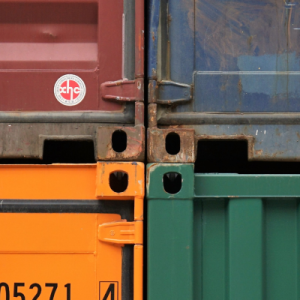The LCL (Less than Container Load) service is a sea freight service designed to ship small volumes of goods that do not justify the use of a full container. At the same time, cargoes of different customers are combined in one container, which reduces transportation costs.
Therefore, if the volume of your cargo will not be enough to fill the entire container, in this case, sea LCL delivery will be the most expedient. At the same time, one container may contain cargoes from different shippers intended for different consignees.
The cost of transportation of less than container load is calculated individually for each customer, depending on the dimensions and weight of the batch.
When else you may need LCL transportation:
- If you order small volumes from different sellers. All your orders will be collected at the warehouse and loaded into one container.
- If you order goods from a new seller, and you want to check the quality before concluding a deal for a large delivery.
- If it is a one-time private order. For example, you need equipment to be brought for personal use.
Specifics of LCL transportation:
- Cost-effectiveness: LCL transportation make it possible to reduce transportation costs for shippers with small cargo volumes, since the cost of the container is divided between several participants.
- Flexibility: Shipment of smaller volumes of cargo without having to wait for a full container.
- Consolidation of cargoes: Cargoes from different shippers are consolidated in one container at the consolidation warehouse and shipped to their destination.
- Additional processing time: Additional time is required for consolidation and separation of cargoes, which may increase the delivery time compared to FCL (full container load).
- Packaging requirements: Goods must be packed in such a way as to prevent damage and ensure ease of handling and storage.
Types of LCL transportation:
- International LCL transportation: Delivery of goods between countries using sea transport. This is the most common type of LCL transportation, where goods are consolidated in warehouses at the ports of departure and destination.
- Domestic LCL transportation: Domestic transportation by road or rail, also including consolidation of goods in warehouses.
- Multimodal LCL transportation: Combining different modes of transport (sea, rail, car) for cargo delivery. For example, the cargo may be first delivered by sea to the port and then transported by rail or road to the final destination.
- Transportation of dangerous goods: Special conditions and requirements for the transportation of dangerous goods, which can also be shipped as part of an LCL cargo subject to compliance with all safety standards.
- Temperature-controlled LCL transportation: Transportation of goods requiring a certain temperature regime, such as food, pharmaceuticals, etc. Containers with such cargo are equipped with special equipment to maintain the required temperature.
Each type of LCL transportation has its own characteristics and is used depending on the type of cargo, route, and requirements of the shipper.
Our Strengths
Fast delivery:We choose the best routes to accurately meet the deadlines set by the customer.
Door-to-door delivery:Our agent will pick up the shipment at the specified address in the country of departure; we will arrange its transportation and deliver it to the exact destination address.
Flexibility:Consolidated container makes it possible to transport goods of any volume, even if they are significantly smaller than the size of the container, without additional costs.
Reducing costs:We consolidate cargo at the port and load them into one container, which can significantly reduce costs for customers.
Contact our managers today to learn more about our services and order the LCL transportation.




